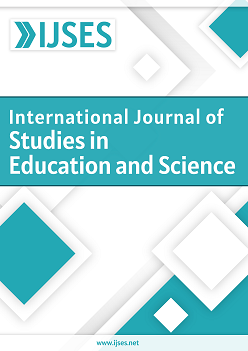Implementing Lesson Study in Middle Schools: Benefits and Challenges
DOI:
https://doi.org/10.46328/ijses.38Keywords:
Eritrea, Teacher development, Lesson study, Classroom practice, Middle schools, Benefits, ChallengesAbstract
Lesson study (LS) as teacher development strategy has received a great deal of attention from researchers and teachers alike. It involves teachers’ collaboratively planning lessons, observing lessons, and then discussing their observations of the teaching and learning process. The study in question is part of a larger project that explored the implementation of LS in three middle schools in Eritrea. Semi-structured interviews and participants’ reflective reports were used to generate data during the different phases of LS. By drawing on the qualitative data, the study identified factors that supported or hindered the implementation of LS in Eritrea. LS enhanced the content and pedagogical knowledge, observation skills, collaboration, confidence and motivation of teachers. It also enhanced student learning. However, challenges such as lack of time, the novelty (newness) of LS and a resource-poor context posed a threat to teachers’ participation in LS. Given the benefits identified, this study advises policymakers in Eritrea to consider plans that would promote the use of LS as school-based teacher development strategy in all school districts nationally.References
Abdella, A. & Reddy, C. (2022). Implementing lesson study in middle schools: Benefits and challenges. International Journal of Studies in Education and Science (IJSES), 3(2), 85-104.
Downloads
Published
Issue
Section
License
Articles may be used for research, teaching, and private study purposes. Authors alone are responsible for the contents of their articles. The journal owns the copyright of the articles. The publisher shall not be liable for any loss, actions, claims, proceedings, demand, or costs or damages whatsoever or howsoever caused arising directly or indirectly in connection with or arising out of the use of the research material.
The author(s) of a manuscript agree that if the manuscript is accepted for publication in the International Journal of Studies in Education and Science (IJSES), the published article will be copyrighted using a Creative Commons “Attribution 4.0 International” license. This license allows others to freely copy, distribute, and display the copyrighted work, and derivative works based upon it, under certain specified conditions.
Authors are responsible for obtaining written permission to include any images or artwork for which they do not hold copyright in their articles, or to adapt any such images or artwork for inclusion in their articles. The copyright holder must be made explicitly aware that the image(s) or artwork will be made freely available online as part of the article under a Creative Commons “Attribution 4.0 International” license.

This work is licensed under a Creative Commons Attribution-NonCommercial-ShareAlike 4.0 International License.





